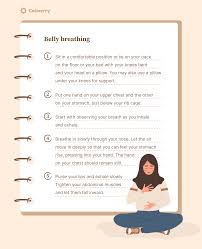The Impact of Anxiety on Mental Health
Anxiety is a common emotion experienced by many individuals in response to stress or uncertainty. While it is a normal reaction to certain situations, excessive or prolonged anxiety can have a significant impact on mental health and overall well-being.
Types of Anxiety Disorders
There are several types of anxiety disorders, including:
- Generalized Anxiety Disorder (GAD): Characterized by persistent and excessive worry about various aspects of life.
- Panic Disorder: Involves sudden and repeated episodes of intense fear that may lead to physical symptoms like heart palpitations and sweating.
- Social Anxiety Disorder: Fear of social situations and interactions that can interfere with daily activities.
- Obsessive-Compulsive Disorder (OCD): Involves intrusive thoughts and repetitive behaviors to alleviate anxiety.
Symptoms of Anxiety
The symptoms of anxiety can manifest in various ways, including:
- Feelings of nervousness or restlessness
- Rapid heartbeat or palpitations
- Sweating or trembling
- Trouble concentrating or sleeping
- Irritability or mood swings
Managing Anxiety
There are several strategies that can help manage anxiety, such as:
- Deep Breathing: Practice deep breathing exercises to calm the mind and body.
- Regular Exercise: Engage in physical activity to reduce stress and improve mood.
- Mindfulness Meditation: Focus on the present moment to alleviate anxious thoughts.
- Talking to a Therapist: Seek professional help for therapy or counseling sessions.
In Conclusion
Anxiety is a common mental health issue that can have a significant impact on daily life. By understanding the types of anxiety disorders, recognizing the symptoms, and implementing effective management strategies, individuals can take steps towards improving their mental well-being and quality of life.
Understanding and Managing Anxiety: Common Questions Answered
- What does it mean to feel anxious?
- How do I stop feeling anxious?
- What are 5 symptoms of anxiety?
- How to calm down anxiety?
What does it mean to feel anxious?
Feeling anxious is a common emotional response characterized by a sense of unease, worry, or fear about future events or uncertain outcomes. When someone feels anxious, they may experience physical symptoms such as increased heart rate, sweating, trembling, and difficulty concentrating. Emotionally, anxiety can manifest as restlessness, irritability, and a sense of impending doom. It’s important to acknowledge that occasional feelings of anxiety are normal and can even be helpful in certain situations. However, when anxiety becomes persistent, overwhelming, or interferes with daily functioning, it may indicate an underlying anxiety disorder that could benefit from professional support and management strategies.
How do I stop feeling anxious?
To stop feeling anxious, it is important to first acknowledge and accept your feelings of anxiety. One effective strategy is to practice mindfulness techniques, such as deep breathing exercises or meditation, to help calm the mind and body. Engaging in regular physical exercise can also help reduce stress and improve mood. Additionally, seeking support from a therapist or counselor can provide valuable tools and coping mechanisms to manage anxiety effectively. Remember that it is okay to ask for help and prioritize self-care in your journey towards overcoming anxiety.
What are 5 symptoms of anxiety?
Anxiety can manifest in various ways, and there are five common symptoms to look out for. These include feelings of nervousness or restlessness, physical manifestations such as rapid heartbeat or sweating, difficulties with concentration or sleep, mood swings or irritability, and sometimes even trembling. Recognizing these symptoms is the first step in addressing anxiety and seeking appropriate support and guidance to manage its impact on mental health and overall well-being.
How to calm down anxiety?
To calm down anxiety, there are several effective strategies that can help alleviate feelings of stress and worry. One approach is deep breathing exercises, where you focus on slow, deep breaths to help relax your mind and body. Engaging in regular physical exercise can also be beneficial in reducing anxiety levels and improving overall mood. Practicing mindfulness meditation can help you stay present and manage anxious thoughts more effectively. Additionally, seeking support from a therapist or counselor can provide valuable techniques and coping mechanisms to address anxiety symptoms and promote mental well-being. By incorporating these strategies into your daily routine, you can take proactive steps towards calming anxiety and enhancing your overall quality of life.



